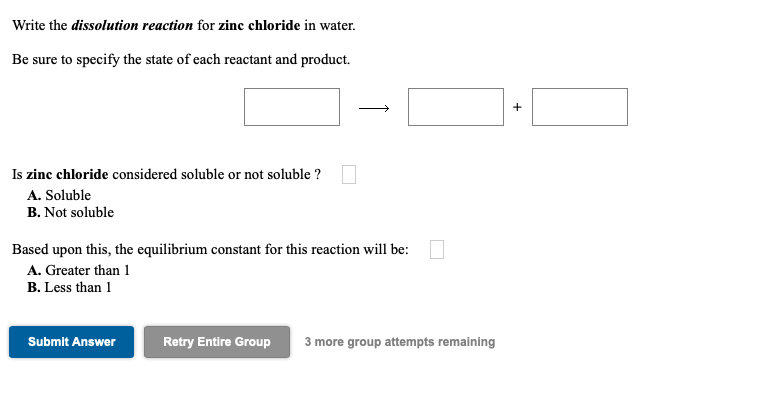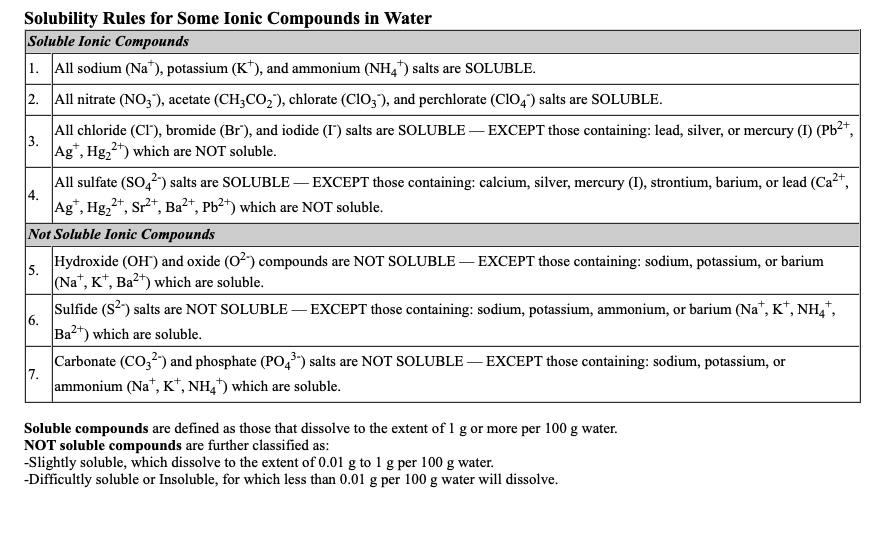Write the dissolution reaction for zinc chloride in water. Be sure to specify the state of each reactant and product. Is zinc chloride considered soluble or not soluble ? A. Soluble B. Not soluble Based upon this, the equilibrium constant for this reaction will be: A. Greater than 1 B. Less than 1
Ionic Equilibrium
Chemical equilibrium and ionic equilibrium are two major concepts in chemistry. Ionic equilibrium deals with the equilibrium involved in an ionization process while chemical equilibrium deals with the equilibrium during a chemical change. Ionic equilibrium is established between the ions and unionized species in a system. Understanding the concept of ionic equilibrium is very important to answer the questions related to certain chemical reactions in chemistry.
Arrhenius Acid
Arrhenius acid act as a good electrolyte as it dissociates to its respective ions in the aqueous solutions. Keeping it similar to the general acid properties, Arrhenius acid also neutralizes bases and turns litmus paper into red.
Bronsted Lowry Base In Inorganic Chemistry
Bronsted-Lowry base in inorganic chemistry is any chemical substance that can accept a proton from the other chemical substance it is reacting with.


Trending now
This is a popular solution!
Step by step
Solved in 4 steps









